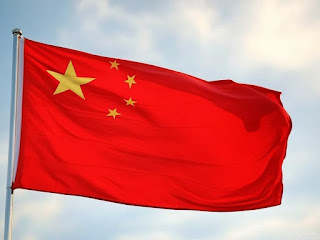On Saturday, China announced sweeping tariffs on more than $2.6 billion worth of Canadian agricultural and food products, a significant escalation in the ongoing trade tensions between the two nations. This move is widely seen as a retaliatory measure against the levies Ottawa introduced in October, further entangling Canada in a broader trade war that has been largely driven by U.S. policy under President Donald Trump.
A Retaliatory Strike
China’s decision to impose these tariffs underscores the growing strain in Canada-China relations, which have deteriorated in recent years due to diplomatic and economic disputes. Beijing has framed the tariffs as a necessary response to Canada’s decision to impose duties on Chinese imports last fall, suggesting that Ottawa’s policies have unfairly targeted Chinese businesses.
While the specifics of the new tariffs have yet to be fully detailed, they are expected to hit Canadian exports of key agricultural products such as wheat, barley, beef, and pork—industries that heavily rely on international trade. Canada’s farmers and food exporters now face significant uncertainty, with many already struggling due to volatile global markets and existing trade barriers.
Canada Caught in the Crossfire
This latest development highlights Canada’s increasingly precarious position in the ongoing global trade conflicts. While the primary economic standoff has been between the United States and China—marked by tit-for-tat tariffs and trade restrictions—Canada has increasingly been drawn into the fray.
The Trudeau government’s October decision to impose tariffs on Chinese goods was likely an attempt to align more closely with Western allies, particularly the United States, which has been leading the charge against what it describes as China’s unfair trade practices. However, Beijing’s retaliation now places additional pressure on Canadian businesses, forcing Ottawa to navigate a delicate balancing act between supporting domestic industries and maintaining stable international trade relations.
What’s Next?
The long-term implications of these new tariffs remain uncertain. Canada may attempt to negotiate with China to ease restrictions, but with tensions already high—particularly following the prolonged dispute over the detention of Huawei executive Meng Wanzhou and the subsequent arrest of Canadian citizens in China—diplomatic solutions may be difficult to achieve.
For Canadian exporters, the immediate focus will be on finding alternative markets and minimizing the impact of lost sales to China. However, unless a resolution is reached, these tariffs could have lasting economic consequences, further straining Canada’s agricultural sector and complicating its trade policies.
As the global trade war continues to evolve, Canada must carefully assess its next moves. Will Ottawa push back with further countermeasures, or will it seek a diplomatic off-ramp to de-escalate tensions? Either way, the economic stakes are high, and the outcome will shape the future of Canadian trade for years to come.




No comments:
Post a Comment